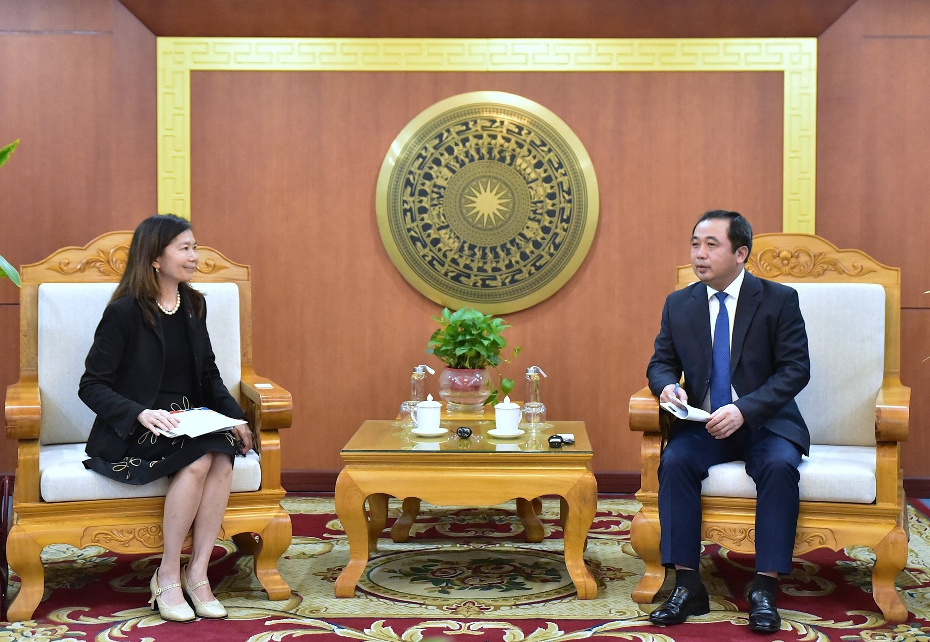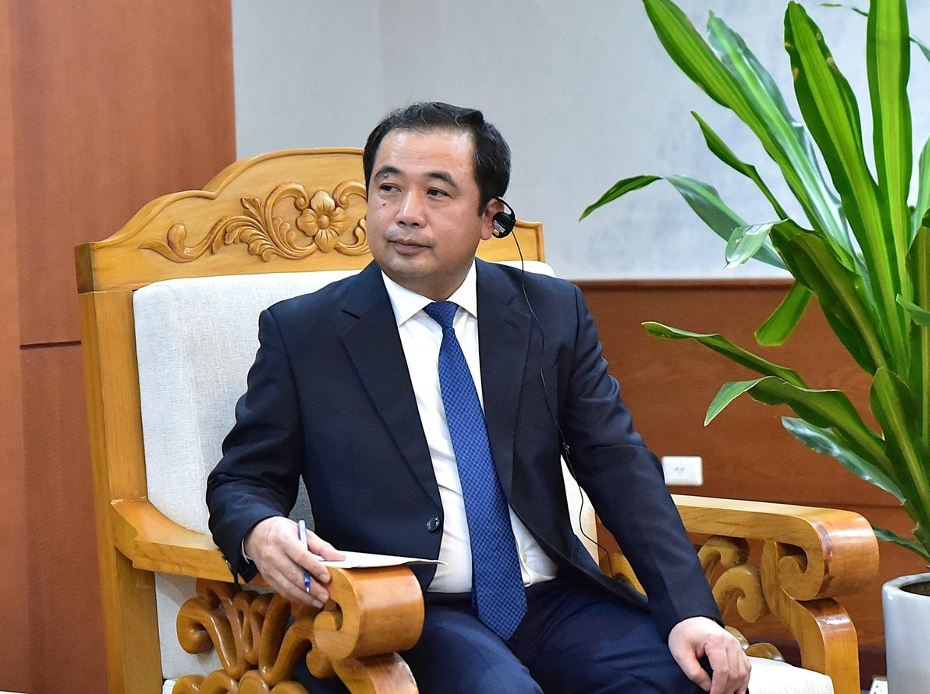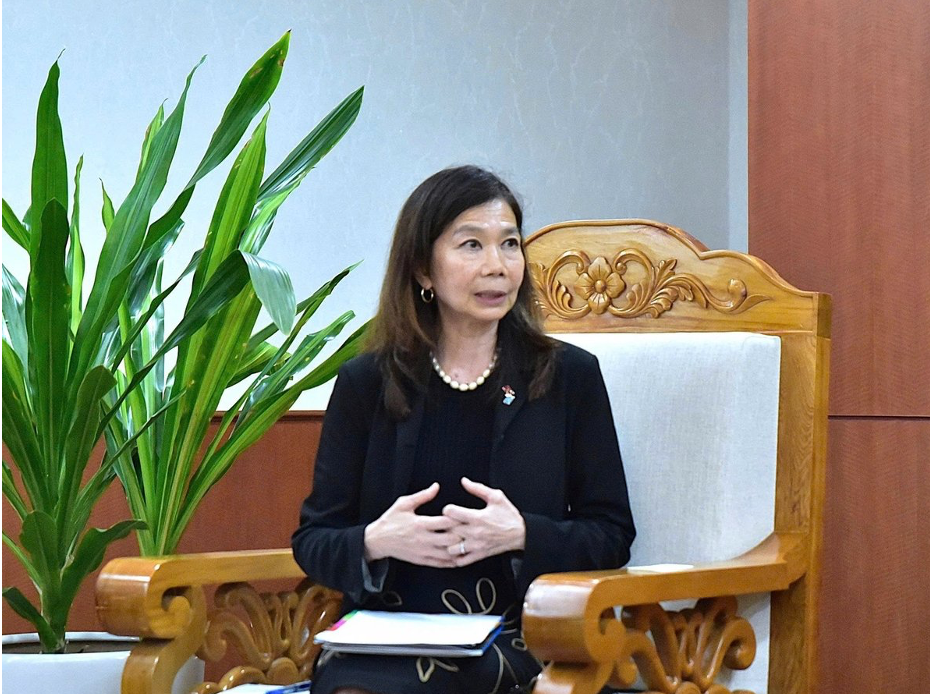UN backs Vietnam in green transition and NDC 3.0 development
On August 19, Acting Minister Tran Duc Thang paid a courtesy call on Ms. Pauline Tamesis, the UN Resident Coordinator in Vietnam.
The meeting took place as Vietnam prepares to celebrate the 80th anniversary of its Independence Day on September 2 and the 80th anniversary of the founding of the United Nations. In the lead-up to COP30, Vietnam is actively advancing the update of its Nationally Determined Contribution (NDC) 3.0.

Affirming close cooperation in Vietnam's new era
At the meeting, Acting Minister Tran Duc Thang emphasized that Vietnam has always valued its cooperative relationship with the United Nations, particularly in the areas of climate change, energy transition, and the pursuit of the Sustainable Development Goals (SDGs). He affirmed: "All of Vietnam’s core policies place people at the center, ensuring that no one is left behind in the development process."
In addition, Vietnam hopes that the United Nations will provide support in green financing mechanisms, technology transfer, private sector investment mobilization, and capacity building for governance. The Acting Minister noted that the Ministry of Agriculture and Environment (MAE) is preparing to revise the Law on Environmental Protection to implement the Net Zero commitment effectively, and the involvement of international experts in this process will be essential.

Mr. Tran Duc Thang further shared that, since the beginning of the year, MAE has been directing the development of Vietnam’s NDC 3.0, ensuring a balance between two objectives: fostering economic growth while reducing greenhouse gas emissions. The first draft is expected to be completed by mid-September, in time to serve as a report at the United Nations headquarters ahead of COP30.
Both sides also agreed that energy transition is the key to achieving net-zero emissions by 2050. Acting Minister Tran Duc Thang proposed specific areas of cooperation with the United Nations, including the development of renewable energy (wind and solar power), the establishment of integrated energy storage systems, the upgrading of power grids and substations, the application of artificial intelligence to reduce emissions, and the improvement of the legal framework related to environmental protection.
Ms. Pauline Tamesis, UN Resident Coordinator in Vietnam, recalled the six opportunities for a just energy transition highlighted by the UN Secretary-General in his speech on July 22. The Secretary-General encouraged world leaders to announce their NDC 3.0 targets at the high-level event co-chaired by the President of Brazil at the end of September.
"Viet Nam is well-positioned to seize these 6 opportunities: with its strong and long-term commitment to achieve net-zero emissions by 2050, participation in JETP and through its most updated NDC 3.0", she conveyed.
She reaffirmed the long-term and strong commitment of UN agencies such as UNDP, UNICEF, UN Women, WHO, and IOM to continue working alongside the Government of Vietnam in key areas such as climate change response, gender equality promotion, public health care, and strengthening society’s resilience to natural disasters and crises.
"The world no longer has much time to meet the goal of limiting global temperature rise to no more than 1.5 degrees Celsius pre-industrial," Ms. Pauline stressed. Vietnam, she said, needs to demonstrate strong determination through concrete and measurable solutions. The United Nations is ready to share technical tools, emission-monitoring expertise, and support capacity building at all levels, from central to local.
Practical support from UN Country Team
Ms Pauline highlighted particular attention to those most vulnerable to climate change, including rural women, children and adolescents, persons with disabilities and ethnic minorities whose lives, livelihoods, health and wellbeing are increasingly at risk.

In particular, UNDP affirmed that it would continue to serve as the lead agency in the NDC 3.0 process, while being ready to organize consultations with the private sector on cooperation priorities. UNICEF and WHO pledged to accompany Vietnam in projects to improve health and living conditions, particularly in areas most vulnerable to climate change. Programs from UN Women, IOM, and FAO will also contribute to ensuring sustainable livelihoods, promoting gender equality, and advancing climate-smart agriculture.
Concluding the meeting, Acting Minister Tran Duc Thang emphasized that Vietnam views climate change as a global challenge requiring the joint efforts of all parties. He highly appreciated the United Nations’ support from emergency relief during storms and natural disasters to long-term projects in agriculture, health, education, and the environment.
“We look forward to increasingly substantive and effective cooperation with the UN system, so that Vietnam’s international commitments are not only statements but are realized through concrete actions, contributing to building a greener, cleaner future and improving the quality of life for all,” Mr. Tran Duc Thang affirmed.
Kieu Chi